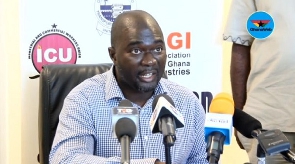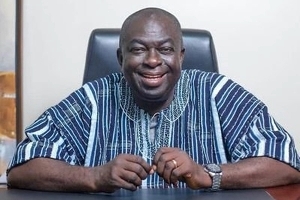Business News of Saturday, 23 January 2021
Source: www.ghanaweb.com
Energy Sector: Don’t impose new taxes, seal revenue leakages – COPEC urges govt
The Chamber of Petroleum Consumers, COPEC has urged government to place more attention on sealing revenue leakages in the energy, oil and gas sectors rather than impose new taxes.
According to the Executive Secretary of the Chamber, the state has already incurred huge financial losses in these sectors as a result of many illegal activities.
Duncan Amoah, in an interaction with Citi Business News said government must place a priority on re-strategizing its revenue mobilisation efforts to prevent further losses.
“Don’t let us get to another cycle of finance ministers going to Parliament to say government needs revenue, so we are going to pass new taxes, whereas revenue in billions of dollars, per the report you see in my hand which we are yet to be discussed, is being lost to the state on a day-to-day basis,” Duncan Amoah stressed.
“We will commend Professor Stephen Addai and the board of Ghana Revenue Authority (GRA) for this diligent job but as to whatever becomes of us collecting whatever we deserve from the foreign oil companies, we should activate them to collect those monies so that the state is not found in need of revenues the trotro driver will not have to come and pay for,” he added.
To raise revenue for the country, governments over the years have normally imposed new taxes, particularly on petroleum.
In the build to the 2016 Presidential and Parliamentary election, the issue of fuel prices became a national conversation.
The former Finance Minister under the erstwhile, John Mahama administration, Seth Terkper, presented a Special Petroleum Tax (SPT) of 17.5 percent in the 2015 fiscal year before Parliament.
Though the introduction of tax was met with some uproar from citizens and petroleum consumers, the former Finance Minister contended that the tax was required to improve government revenue.
Price of crude oil prices at the time had fallen below US$30 per barrel as against the projected price of government per barrel.











